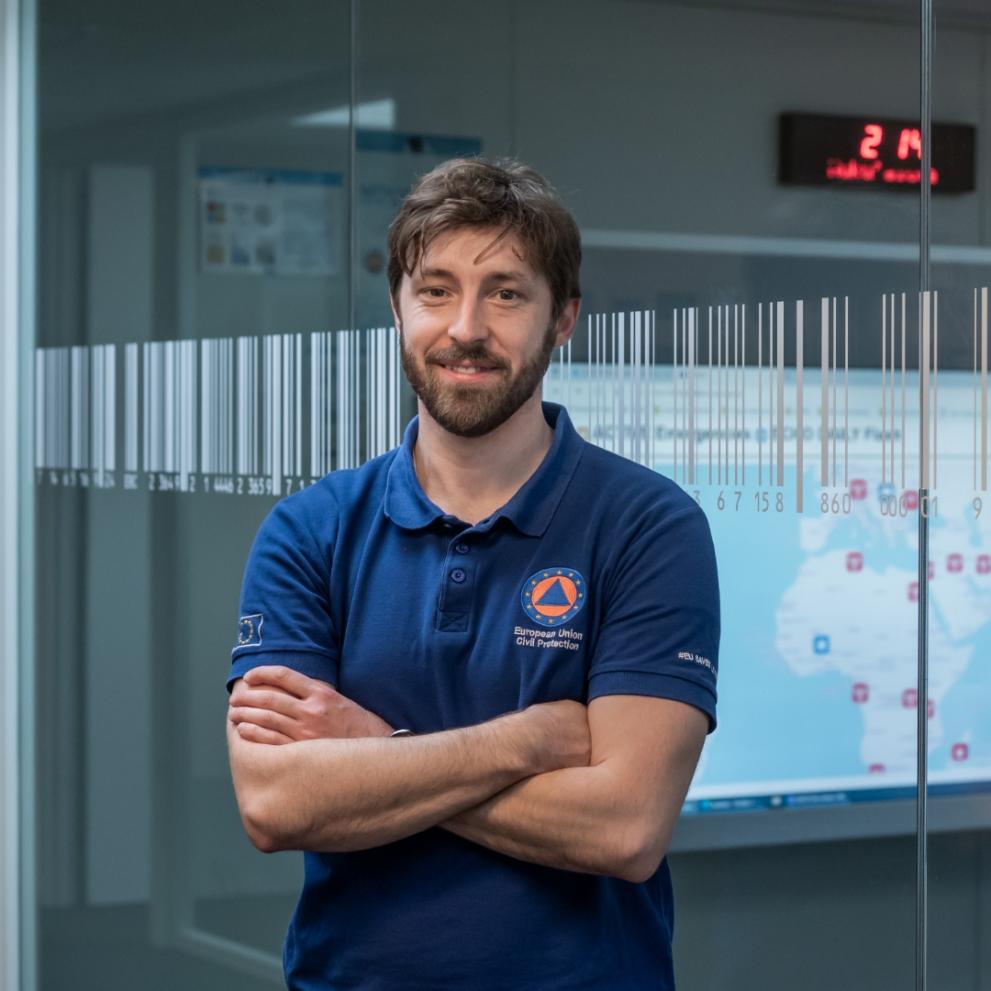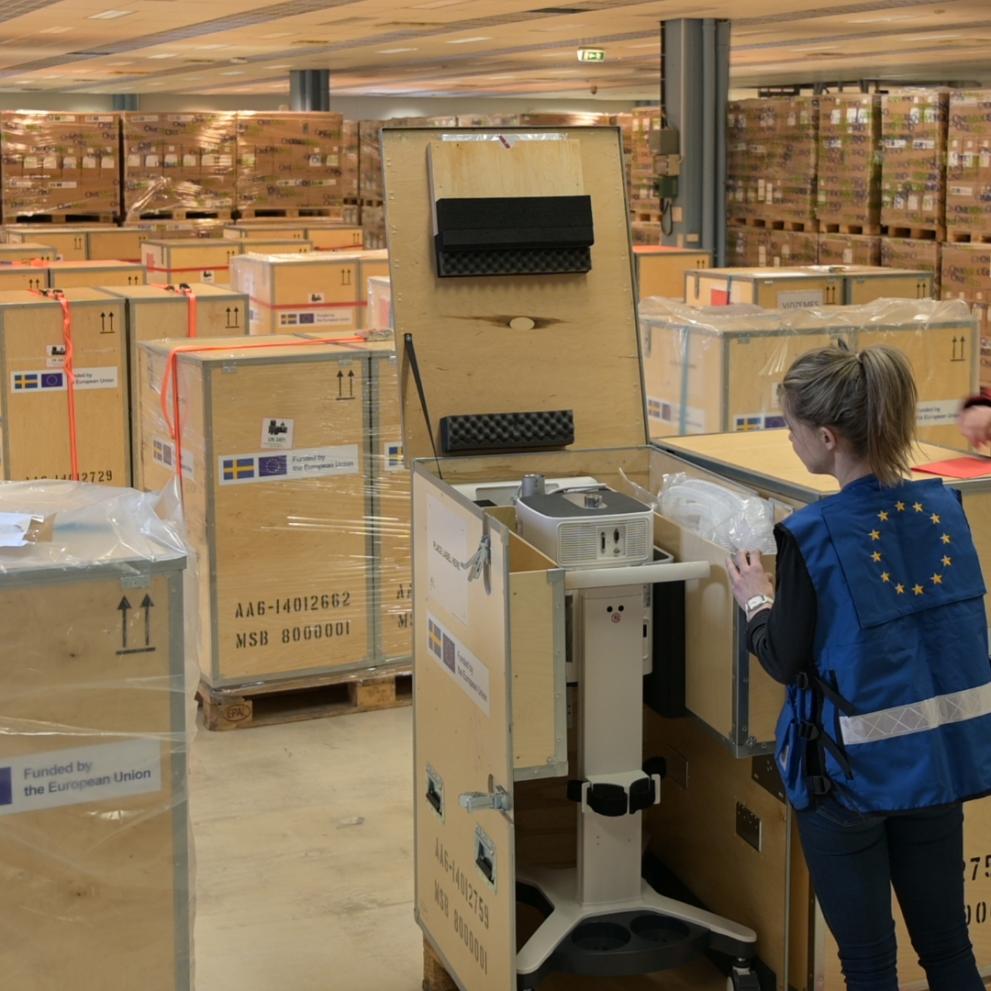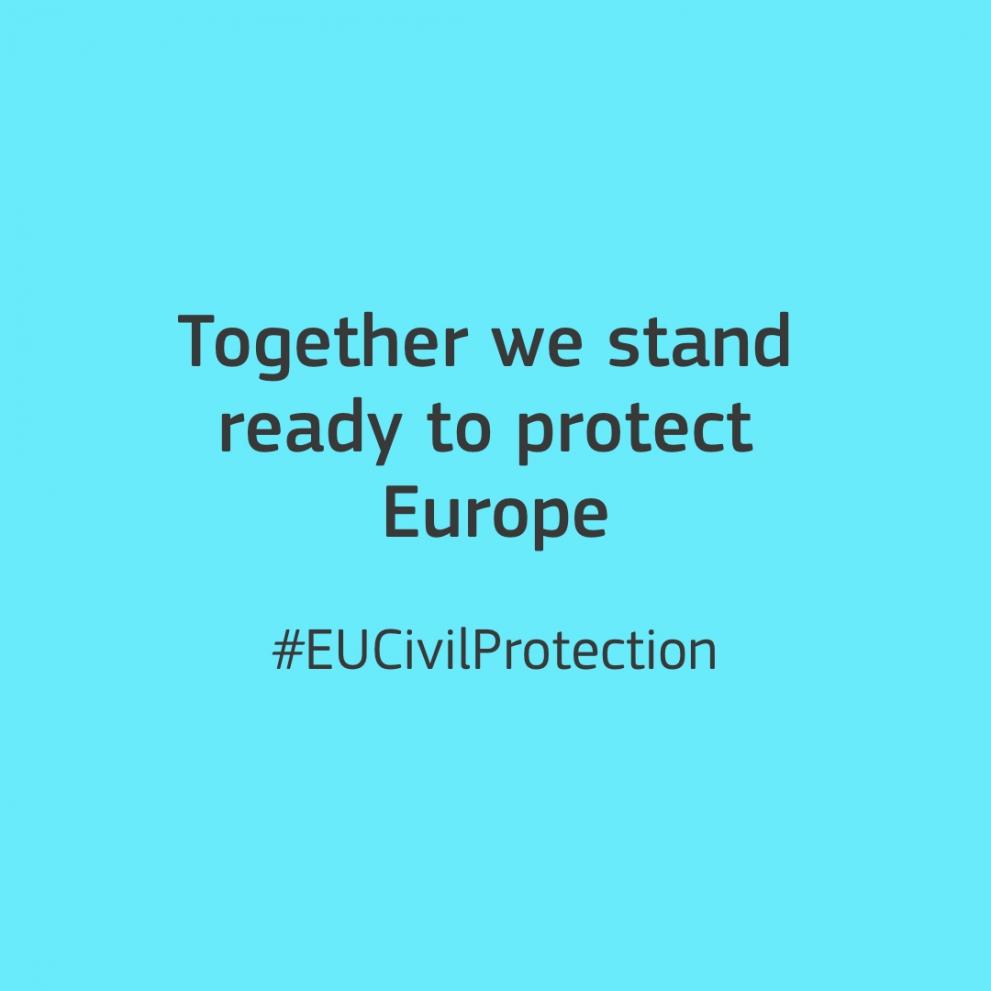COVID-19 patients in Latvia needed ventilators to keep breathing, but access to them was limited in other EU countries as well. When Latvia asked for help from the EU’s Emergency Response Coordination Centre, though, Sweden was able to assist by providing the devices from the EU medical stockpile it hosts.

At the height of the COVID-19 pandemic, as critically ill patients required assistance to keep breathing, access to ventilators was crucial to save lives.
Thanks to a rescEU medical stockpile hosted by Sweden, Latvian hospitals were able to use additional ventilators to treat COVID-19 patients, helping them save lives.
Latvia had submitted a request for support to the Emergency Response Coordination Centre (ERCC) in Brussels, which coordinates the delivery of assistance from 27 EU countries and 6 other participating states as part of the EU Civil Protection Mechanism.
Through this mechanism, the ERCC finds support for countries affected by crises such as medical emergencies and natural hazards. When the countries involved are unable to help, the EU can step in directly.
In the case of a health emergency such as COVID-19, the ERCC can provide medical material from the EU’s own reserve, which is stored in various rescEU stockpiles across Europe.
This is how, between the end of October and the beginning of November 2021, Latvia received 80 breathing machines on loan from the rescEU medical stockpile hosted by Sweden.
The importance of stockpiling

"During the pandemic, we learned how important it is to have stockpiles of medical equipment, including the ventilators that were sent from Sweden to Latvia in this rescue operation,” says EU Civil Protection officer Johannes Vara, who was part of a team coordinating the delivery from Brussels.
"This lesson will be of great help in the future."
The rescEU stockpile hosted by Sweden, in the city of Kristinehamn, also includes personal protective equipment and other medical supplies.
The Swedish Civil Contingencies Agency (MSB), which is responsible for storing and transporting medical supplies from the rescEU stockpile, ensured smooth delivery of the ventilators to Latvia.
"We have a lot of experience in warehousing, as well as in crisis response which enabled us to ensure that medical aid to Latvia was delivered promptly,” says an MSB spokesperson. The rescEU stockpile plays an important role in EU’s response to emergencies and we are proud to be among the host countries."
Solving bigger issues together

The availability of EU medical stockpile proved especially crucial at a time when the ERCC was overwhelmed with requests for assistance during COVID-19.
"What we have seen during the pandemic is unprecedented,” says Vara.
"We were used to dealing with 20 to 30 emergency requests per year, but with the pandemic the number of COVID-19-related requests was around 70 a year. On top of that, we had other emergencies such as earthquakes and tropical cyclones, which increased the number of cases to over 100.”
Vara has worked with the ERCC for 7 years, responding to all sorts of crises, such as the forest fires that hit Sweden in 2018.
On that occasion, Sweden requested assistance through the EU Civil Protection Mechanism and received firefighting planes, helicopters, fire engines and other resources from 7 EU countries.
"Those were the biggest forest fires in the country’s history, and Sweden’s own resources were exhausted,” Vara says.
According to Vara, this was a very good example of how the ERCC can make the difference helping countries deal with emergencies.
"If all 27 EU countries plus 6 participating states can work together to solve problems, this is a big added value,” he says. “Instead of having everyone working separately on their own, we can work together and solve some bigger issues. It gives me a good feeling.”
